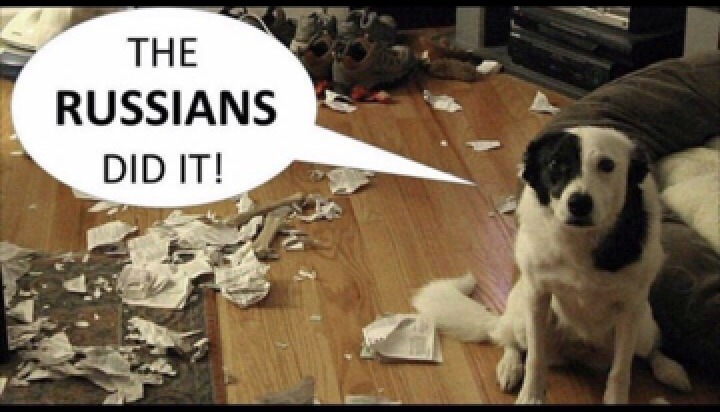
Countless observers have noted the obvious fact that the corporate media’s all-encompassing obsession with anti-Russia hysteria is partly just a shameless campaign to prevent change within the Democratic Party by blaming its loss on an outside enemy as opposed to the oligarch-coddling, corrupt disaster it nominated. While true, the strategy is far bigger than that. So called Western elites have failed miserably across the globe, and the only way to retain their undeserved positions of power (many should be in jail), is to create and promote a mindless, highly emotional, non-domenstic distraction. Enter Russia.
Ken Wilber perfectly articulated the failure of our discredited status quo in his recent ebook, which I quoted extensively from in my recent post, How a Breakdown in Liberal Ideology Created Trump – Part 1. He noted:
The problem very quickly became what Integral Metatheory calls a “legitimation crisis,” which it defines as a mismatch between Lower-Left (or cultural) beliefs and the Lower-Right systems (or actual background realities, such as the techno-economic base). The cultural belief was that everybody is created equal, that all people have a perfect and equal right to full personal empowerment, that nobody is intrinsically superior to others (beliefs that flourished with green). Yet the overwhelming reality was increasingly one of a stark and rapidly growing unequality—in terms of income and overall worth, property ownership, employment opportunity, healthcare access, life satisfaction issues. The culture was constantly telling us one thing, and the realities of society were consistently failing to deliver it—the culture was lying. This was a deep and serious legitimation crisis— a culture that is lying to its members simply cannot move forward for long. And if a culture has “no truth,” it has no idea when it’s lying—and thus it naturally lies as many times as it accidentally tells the truth, and hence faster than you can say “deconstruction,” it’s in the midst of a legitimation crisis.
Naturally, those in power can never admit their historically epic failure on all fronts, so they’re increasingly rallying around the Russia meme in order to distract the public and hopefully hang on to their plum positions within society.
In that regard, Robert Parry has written an excellent article published in Consortium News titled, NYT’s Fake News about Fake News. Here are some key excerpts:
Donate bitcoins: 35DBUbbAQHTqbDaAc5mAaN6BqwA2AxuE7G
Follow me on Twitter.



